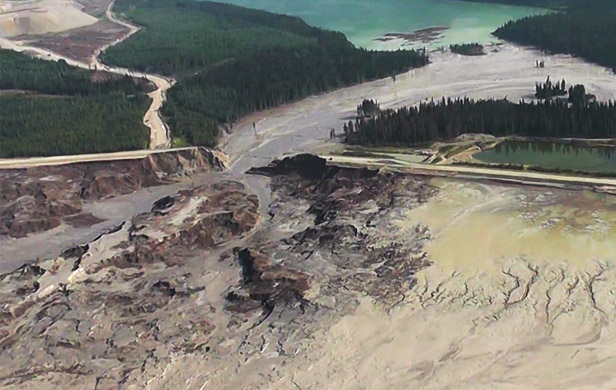Texto solamente disponible en inglés
July 20, 2015
Canadian Energy & Mines Ministers
-
– Hon. Bill Bennett, British Columbia Minister of Energy & Mines
-
– Hon. Margaret McCuaig-Boyd, Alberta Minister of Energy
-
– Hon. Bill Boyd, Saskatchewan Minister of Energy and Resources
-
– Hon. Dave Chomiak, Manitoba Minister of Mineral Resources
-
– Hon. Michael Gravelle, Ontario Minister of Northern Development and Mines
-
– Hon. Pierre Arcand & Luc Blanchette, Quebec Ministers of Energy, Mines & Natural Resources
-
– Hon. Donald Arseneault, New Brunswick Minister of Energy and Mines
-
– Hon. Michel Samson & Zach Churchill, Nova Scotia Ministers of Energy & Natural Resources
-
– Hon. Paula Biggar & Robert Mitchell, Prince Edward Island Ministers of Energy, Land and Environment
-
– Hon. Derrick Dalley, Newfoundland Minister of Natural Resources
-
– Hon. Monica Ell, Nunavut Minister of Energy & Mines
-
– Hon. Michael Miltenberger, Northwest Territories Minister of Environment & Natural Resources
-
– Hon. Scott Kent, Yukon Minister of Energy, Mines & Resources
c/o Anna Bailie, Denis Simard, Jena Léger-Gendron
Coordinators of the Canadian Energy & Mines Ministers’ Conference E-mail: Info@scics.gc.ca, anna.bailie@nrcan-rncan.gc.ca, Denis.Simard@scics.gc.ca,gena.legergendron@novascotia.ca -
Re: Changes needed to mine waste management following Mount Polley tailings site failure
Dear Canadian Energy & Mines Ministers,
-
We are writing on behalf of thousands of Canadians, First Nations representatives, and other concerned organizations regarding the implications of the catastrophic failure of the tailings dam at the Mount Polley mine in British Columbia in August 2014, and the implications for tailings dam design and operational safety at mines throughout Canada.
Based on the findings and recommendations of the Independent Expert Review Panel1 of the Mount Polley tailings dam failure – the biggest in Canadian history – we urge Energy & Mines Ministers from all provinces and territories in Canada to take immediate measures to assess and prevent the threat posed by similar tailings disposal sites at existing and proposed mines in Canada.
In January 2015, a Panel of independent experts released its findings from its investigation of the Mount Polley tailings dam failure, a modern impoundment that breached and released over 24 billion litres of solid and liquid mining wastes (tailings) into the surrounding salmon-bearing lakes and rivers. The full extent of impacts and damages caused by this massive failure are still being assessed and could last for decades.2 Overall direct and indirect costs are climbing in the hundreds of millions of dollars to date, in addition to a steep cost on the industry’s reputation and public trust.3
The Panel concluded that the dam failed because of a faulty design that didn’t account for the instability of the glacial till on which it was constructed. The failure and its effects were also exacerbated by unsafe operational practices, including storage of excess water in and on top of the tailings, as well as over-steep dam slopes. The Panel also concluded that the technology itself – wet tailings contained by large dams – was fundamentally and unacceptably dangerous.
The results of the Mount Polley investigation are of significant importance to mine management all across Canada for a number of reasons:
-
Like the Mount Polley mine, there are many proposed and existing mines in Canada that are similarly located on potentially unstable foundation materials and/or using large dams and water cover for tailings disposal.
-
Long term safety and stability of tailings disposals is a crucial public and environmental safety issue, yet there are no independent agencies responsible for oversight of tailings sites.
-
Costs of tailings failures are enormous, both environmentally and economically, and current regulations are not up to speed with best available technologies to prevent them; proper contingency plans and appropriate financial assurance are also lacking.
The Independent Expert Review Panel firmly rejected any notion “that business as usual can continue,” and urged the industry and all regulators to change the way mining tailings facilities are designed, operated, and regulated in order to avoid any future failures: “The Panel does not accept the concept of a tolerable failure rate for tailings dams. To do so, no matter how small, would institutionalize failure. First Nations will not accept this, the public will not permit it, government will not allow it, and the mining industry will not survive it.” The Panel identified critical risk factors and made a number of key recommendations, including:
-
Creating Independent Tailings Review Boards (ITRBs) to evaluate tailings facilities’ safety.
-
Using Best Available Technology (BAT) that fundamentally shifts tailings storage away from tailings
ponds that store water to dry tailings, such as recommendations to:
-
Eliminate surface water from the impoundment,
-
Promote unsaturated conditions in the tailings with drainage provisions, and
-
Achieve dilatant conditions throughout the tailings deposit by compaction.
-
-
• Evaluating tailings facilities for these potential failure modes:
-
Undrained shear failure for dams with silt and clay foundation soils.
-
Water balance adequacy, including provisions and contingencies for wet years.
-
Filter adequacy, especially for dams containing broadly graded soils or mine waste.
• Applying design, construction and safety standards developed specifically for tailings dams, rather than adapting those used for water retention dams.
• Maintaining a detailed tailings dams and facilities inventory database readily accessible for the public and potentially affected communities.
• Permitting tailings facilities based on a bankable feasibility with a detailed evaluation of all potential failure modes and management for all residual risks, “including a detailed cost/benefit analyses of best available technologies for tailings and closure options, recognizing that the results of the cost/benefit analyses should not supersede BAT safety considerations.”
In the wake of the Mount Polley disaster and the Expert Panel report, the British Columbia government has called for an immediate investigation of the safety of all 123 tailings dams within the province, and recently appointed a Mining Code Review Committee to determine how best to implement the Panel’s recommendations. In the words of the B.C. Mine Minister Bill Bennett: “It is up to us to ensure that we take a leadership role in Canada and internationally to learn from the Mount Polley incident and do everything we can to ensure it never happens again.” 4 The potential for tailings site failures anywhere, including transboundary effects of upstream tailings spills, are also a concern, and the United States and international authorities are also being pressed for parallel commitments.5
Consequently, we urge all Energy & Mines Ministers to:
-
Work together to support and implement all of the Mount Polley Independent Expert Review Panel’s recommendations to avoid any future similar catastrophic tailings failure in Canada;
-
Take immediate measures to assess the safety of existing and proposed tailings sites in each of the provinces and territories, and maintain an inventory of sites and review results accessible to public;
-
Create Independent Tailings Review Boards, including International Joint Commission reviews for transboundary mines located on the Canada-U.S. border that present a risk to either country’s waters.
-
Recognize that there are certain places where the downstream values are too great to expose to the risks associated with the disposal of tailings sites that must be maintained in perpetuity.
We look forward to your response and welcome the opportunity for a more detailed discussion on these matters.
Sincerely,
Signed:6
Organized per province & territory (West to East), then per organizational name (alphabetical)
Dave Porter
Executive Director
BC First Nations Energy & Mining Council British Columbia, Canada
Rod Marining
Chair of Board of Directors
British Columbia Environmental Network British Columbia, Canada
Warren Bell
Founding President
Canadian Association of Physicians for the Environment British Columbia, Canada
Bob Peart
Executive Director
Sierra Club BC
British Columbia, Canada
Theodora Carroll
Coordinator
Squamish Environment Society British Columbia, Canada
Grand Chief Stewart Phillip
President
Union of BC Indian Chiefs British Columbia, Canada
Aaron Hill
Executive Director
Watershed Watch Salmon Society British Columbia, Canada
Karen Weingeist
Coordinator
Coalition for a Clean Green Saskatchewan Saskatchewan, Canada
Debbie Mihalicz
Spokesperson
Committee for Future Generations Saskatchewan, Canada
Elaine Hughes
Coordinator
Council of Canadians – Quill Plains Chapter Saskatchewan, Canada
Michael Poellet
Chairperson
Inter-Church Uranium Committee Educational Co-operative
(ICUCEC) Saskatchewan, Canada
Steve Lawrence
Director
P.A. Renewable Power Intelligent Choice (RPIC) Saskatchewan, Canada
Alex Neve
Secretary General
Amnesty International Canada
Ontario, Canada
Éric Hébert-Daly
National Executive Director
Canadian Parks & Wilderness Society (CPAWS) Ontario, Canada
Dan Lewis
Executive Director Clayoquot Action
British Columbia, Canada
John Werring
Senior Science and Policy David Suzuki Foundation British Columbia, Canada
Amy Crook
Executive Director
Fair Mining Collaborative British Columbia, Canada
Douglas N. Gook
Advisor
Director
Forest Protection Allies (FORPA) British Columbia, Canada
Joe Daniels
Riverkeeper
Fraser Riverkeeper British Columbia, Canada
Nikki Skuce
Project Director Northern Confluence British Columbia, Canada
Norah Bowman
Chair of Interdisciplinary Studies Okanagan College
British Columbia, Canada
Chris Blake
Project Manager
Quesnel River Watershed Alliance British Columbia, Canada
Beatrice Olivastri
Chief Executive Officer Friends of the Earth Canada Ontario, Canada
Chaitanya Kalevar
Spokesperson Just One World Ontario, Canada
Jennifer Henry
Executive Director
KAIROS: Canadian Ecumenical Justice Initiatives Ontario, Canada
Christina Moreau
President
Kipawa Lake Preservation Society Ontario, Canada
Rachel Small
Member-Campaigner
Mining Injustice Solidarity Network Ontario, Canada
Ugo Lapointe
Canadian Program Coordinator MiningWatch Canada
Ontario, Canada
Brennain Lloyd
Director Northwatch Ontario, Canada
Joan Kuyek
Chair
Ontarians for a Just and Accountable Mineral Strategy
(OJAMS) Ontario, Canada
Richard Girard
Executive Director Polaris Institute Ontario, Canada
Adele Finney
Executive Director
Primate’s World Release and Development Fund Ontario, Canada
Judith Deutsch
Director
Science for Peace Ontario, Canada
Henri Jacob
President Action boréale Quebec, Canada
Gordon Edwards
President
Canadian Coalition for Nuclear Responsibility Quebec, Canada
Dominique Bernier
Coordinator
Coalition pour que le Québec ait meilleure mine Quebec, Canada
Nicolas Soumis
Spokesperson
Comité Mine de rien de St-Camille Quebec, Canada
Amelia Orellana
Coordinator
Comité pour les droits humains en Amérique latine (CDHAL) Quebec, Canada
Nicole Kirouac
Lawyer & spokesperson Comité vigilance de Malartic Quebec, Canada
Alain Saladius
Executive Director Fondation Rivières Quebec, Canada
Guy Côté
Coordinator
Groupe de théologie contextuelle québécoise (GTCQ) Quebec, Canada
Denise Brunelle
Coordinator
Groupe Solidarité Justice Quebec, Canada
Sylvie Van Brabant
Director
Rapide-Blanc Productions Quebec, Canada
Lise Lebrun
Coordinator
Regroupement Justice/Environnement des Sœurs de Sainte-
Croix Quebec, Canada
Louise Gagnon
Spokesperson
Regroupement pour la Sauvegarde de la Grande Baie de
Sept-Îles Quebec, Canada
Raymond Desrochers
Coordinator
Réseau œcuménique justice et paix (ROJeP) Quebec, Canada
Marc Fafard
Spokesperson Sept-Iles Sans Uranium Quebec, Canada
Jacques Gélineau
Spokesperson
Société pour vaincre la pollution Quebec, Canada
Sharon Murphy
Coordinator
PEACE-NB
New Brunswick, Canada
Jackie McVicar
Coordinator
Maritimes-Guatemala Breaking the Silence Solidarity
Network Nova Scotia
Roberta Frampton Benefiel
Vice-President
Grand Riverkeeper Labrador Inc. Labrador, Canada
Sue Moodie
Coordinator
Council for Public Health in Mining Communities Yukon, Canada
Dale Kelley
Executive Director
Alaska Trollers Association Alaska, USA
Malena Marvin
Executive Director
Southeast Alaska Conservation Council Alaska, USA
Wendy Russell
Coordinator
Patagonia Area Resource Alliance Arizona, USA
Gary Macfarlane
Ecosystem Defense Director Friends of the Clearwater Indiana, USA
Mary Costello
Executive Director Rock Creek Alliance Indiana, USA
Timothy Judson
Executive Director
Nuclear Information and Resource Service Maryland, USA
Lori Andresen
Director
Save Our Sky Blue Waters, Minnesota, USA
Ivan Weber
Principal/Owner
Weber Sustainability Consulting Utah, USA
Jennifer Krill
Executive Director EARTHWORKS Washington, USA
David Kliegman
Executive Director Okanogan Highlands Alliance Washington, USA
Will Patric
Executive Director Rivers Without Borders Washington, USA
Al Gedicks
Director
Center for Alternative Mining Development Policy Wisconsin, USA
1 https://www.mountpolleyreviewpanel.ca/final-report
2http://www.theglobeandmail.com/news/british-columbia/pollutants-from-mou… study/article24272988/, http://www.theglobeandmail.com/news/british-columbia/mount-polley-tailin… for-decades/article20596892/, see also: http://www.unbc.ca/releases/36934/study-documents-impacts-tailings-impou… spill-on-quesnel-lake, http://onlinelibrary.wiley.com/doi/10.1002/2015GL063345/abstract
3 https://www.biv.com/article/2014/8/prospecting-for-damage-control-in-bc6…, http://globalnews.ca/news/1498222/mount- polley-mine-tailings-pond-breach-is-one-of-the-worst-in-the-world-experts/, http://www.vancouversun.com/business/Imperial+Metals+hammered+news+Mount…. html, http://www.vancouversun.com/technology/Imperial+Metals+pegs+Mount+Polley…,
4 https://news.gov.bc.ca/stories/government-appoints-mining-code-review-co…
5 https://www.earthworksaction.org/media/detail/obama_administration_must_…6

